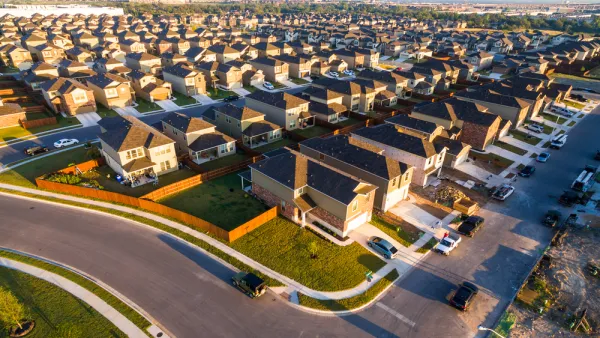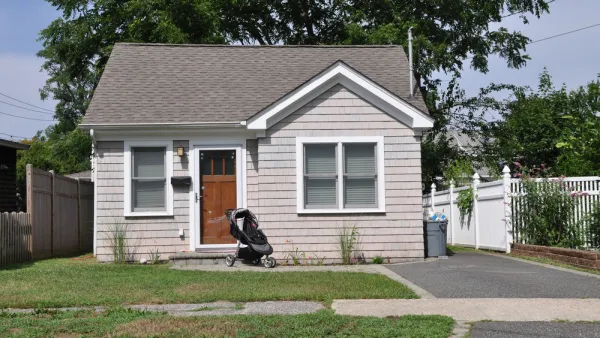Several Dutch cities are planning to limit the reach of large investors in the housing market by limiting the resale of cheap or mid-priced homes.

An article for DutchNews.nl reports on the growing number of local governments in the Netherlands preparing to crackdown on the number of private investors buying up large numbers of cheap and mid-price housing in the country's largest cities.
"A third of all houses sold in the four big cities last year ended up in the hands of developers, prompting first-time buyers to take greater financial risks or preventing them to get onto the housing ladder at all," according to the article.
According to a recent survey [Dutch language] of ten local governments, many cities will take advantage of a new rule that will prohibit the resale of a cheap or mid-priced homes for four years. Some of the cities responding to the survey said they plan to ban developers altogether.
"Local councils will have to justify a ban by showing that the lack of cheap and mid-priced homes in some neighbourhoods is distorting the market and is therefore ‘necessary and effective’," according to the article.
Large private investors are also increasing their footprint in many housing markets in North America, prompting a variety of policy responses.
Some cities and provincial governments in Canada have proposed taxes to "non-resident speculation" to slow the spread of large investments in the housing market. In the United States, community ownership and "opportunity to purchase" acts are proposed as mitigation measures.
Policy approaches to keep distressed real estate assets out of the hands of large private investors are in speculative or experimental stages in the U.S. Senator Elizabeth Warren (D-Mass.) first proposed the American Housing and Economic Mobility Act in 2019—the law is still under consideration in the U.S. Senate—to require the Federal Housing Administration to ensure that not less than 75 percent of the single-family residential properties conveyed to the Federal Housing Administration after foreclosure are sold to owner-occupants or "community partners." California's SB 1079, proposed by Democratic State Senator Nancy Skinner and signed into law in September 2020, modified the foreclosure auction process to reduce the advantage big corporations had that allowed them to bulk-purchase many homes at a single auction.
In addition to the links in the previous paragraph, Planetizen frequently publishes articles on the "financialization" of housing, including articles from 2019 and 2021 that provide an introduction to the subject.
FULL STORY: Cities plan to use new law to block investors from housing market

Analysis: Cybertruck Fatality Rate Far Exceeds That of Ford Pinto
The Tesla Cybertruck was recalled seven times last year.

National Parks Layoffs Will Cause Communities to Lose Billions
Thousands of essential park workers were laid off this week, just before the busy spring break season.

Retro-silient?: America’s First “Eco-burb,” The Woodlands Turns 50
A master-planned community north of Houston offers lessons on green infrastructure and resilient design, but falls short of its founder’s lofty affordability and walkability goals.

Test News Post 1
This is a summary

Analysis: Cybertruck Fatality Rate Far Exceeds That of Ford Pinto
The Tesla Cybertruck was recalled seven times last year.

Test News Headline 46
Test for the image on the front page.
Urban Design for Planners 1: Software Tools
This six-course series explores essential urban design concepts using open source software and equips planners with the tools they need to participate fully in the urban design process.
Planning for Universal Design
Learn the tools for implementing Universal Design in planning regulations.
EMC Planning Group, Inc.
Planetizen
Planetizen
Mpact (formerly Rail~Volution)
Great Falls Development Authority, Inc.
HUDs Office of Policy Development and Research
NYU Wagner Graduate School of Public Service




























